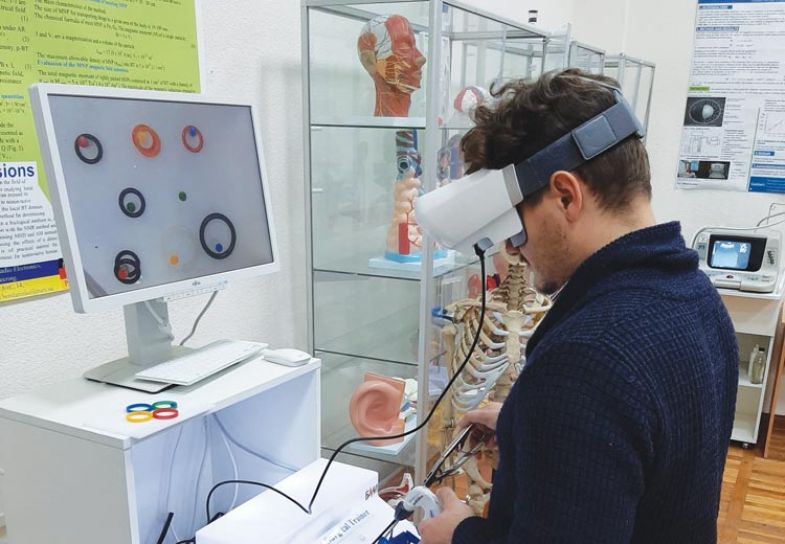
Kharkiv National University of Radio Electronics has a long history as a centre of excellence in Ukraine. It also promotes a forward-thinking and inclusive approach to research
Although Kharkiv National University of Radio Electronics (NURE) is one of the oldest technical universities in Ukraine, its outlook is far from traditional. Established in 1930, the institution offers a range of disciplines from computer science and radio electronics to cybersecurity and biomedicine.
“NURE is an institution that, despite its long history, is constantly changing and developing, and therefore will always remain modern,” explains Oleksandra Yeremenko, professor of the department of infocommunication engineering. “The main educational aim is, first, adaptation to the changing economic conditions and, second, meeting the requirements of the young people who study here.”
The university achieves these aims through a commitment to forming high-tech innovation clusters and attracting investment from business and international sources. For example, NURE was recently selected to participate in a cybersecurity infrastructure project with the US Agency for International Development, cementing its position as the authority on cybersecurity in the region.
One of the key focuses at NURE is interdisciplinary research, aimed at solving strategically important issues and building entrepreneurial skills among students. Technical skills are important, says Professor Yeremenko, but it is also crucial that students and researchers develop soft skills that enable them to work in a changing labour market. “We’re involved in inter-European research, and different projects and collaborations in science and technology, so students can go in many directions,” she says.
One of these projects is a joint programme looking at the use of artificial intelligence to identify hybrid threats such as cyberattacks. Another, with NATO, seeks to develop proof of concept for a cyber defence logistics tool. NURE is also involved in a project called dComFra (digital competence framework for Ukrainian teachers and other citizens), which aims to improve digital skills among Ukrainian citizens and supports NURE’s commitment to the UN’s Sustainable Development Goals.
Oleg Avrunin, head of the biomedical engineering department, says: “Active international cooperation, joint research projects, the quality of our laboratories and educational equipment, direct communication with manufacturers and the implementation of developments set apart NURE from other universities in Ukraine.” The research that Professor Avrunin oversees has important real-life applications, such as developing innovative technologies for physical rehabilitation and lasers for minimally invasive surgery.
The pandemic has not put the brakes on innovation or learning at NURE. For the first time, the biomedical engineering department introduced distance learning, which included conducting virtual laboratory work for the study of introscopic medical systems and using 3D immersive video. “This allowed remote practical training in technical disciplines, such as microcontroller systems, with maximum realism,” adds Professor Avrunin.
Future developments will commercialise research further and make the university a go-to destination for students and researchers. One such project is the creation of an innovation hub in partnership with Synergy, which was the first science park in NURE’s home city of Kharkiv. This will offer a host of short courses in highly sought-after technical and business skills, as well as opportunities to apply those skills in small teams and work with mentors, preparing graduates for their careers ahead.
